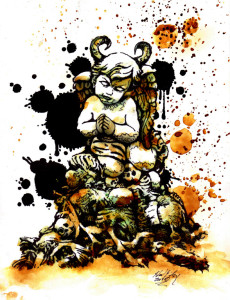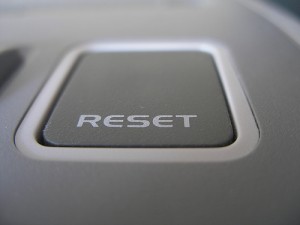Given my normally upbeat persona, this might surprise you: Once upon a time, I hated myself. I hated a lot of people, but none more so than myself. The worst of that hatred came after I started facing my demons.
Mood Music:
http://youtu.be/TP06kxW_M3I
I disliked myself before I started to tackle the demons with therapy. A couple years into that therapy, the self-loathing deepened. I had learned much about who I was and how I got that way, but I hadn’t yet figured out how to change. That made me angry, and I turned in on myself.
I intensified my addictive behavior to cope, burying my sorrows in food, alcohol and the pain pills doctors prescribed for chronic back pain.
When I cut flour and sugar from my diet and started putting my meals on a scale to bring the binge eating to heel, I felt worse before I started to feel better. I felt edgy in my skin and hated myself for not being stronger. To cope with that I started drinking a lot of wine. When I quit that, I no longer knew how to act in big social crowds. I hated myself for that, too.
When you start to fight your demons head-on, you become super-aware of your own vulnerabilities. For a while, I became paralyzed by mine.
I’m not a special case.
In his book, Symptoms of Withdrawal, Christopher Kennedy Lawford writes that after he kicked drugs in 1986, it took him awhile to actually become a good person.
Those around him weren’t always happy he was sober, especially since that meant he couldn’t make the cocktails at family gatherings like he used to.
He writes about having to learn how to be a decent human being and be clean at the same time. You would think it’s easy. It’s not.
In the book, Lawford writes:
There is another great fiction of recovery — that is, once you stop using your life becomes a bed of roses. Anybody who has stayed sober for any length of time knows that living sober is about learning to live life on life’s terms and a good part of life is painful. When I got sober someone said to me that I would get to realize all my greatest fears in sobriety … You know what? He was right, and it’s not half as bad as I imagined.
There’s a lot of truth there. I had a lot to learn, and I’m still learning, a full decade after I first started the work.
While the work goes on — and will continue to go on — there’s an important point to be made. Somewhere along the way, I learned to like myself.
Today, I can honestly say I’m happy with the man I’ve become, even if I’m still far from perfect.
But, then, perfect people don’t exist. If they did, they’d be boring.










